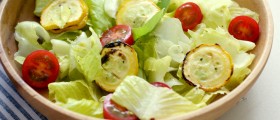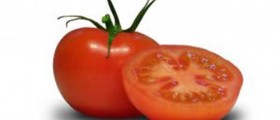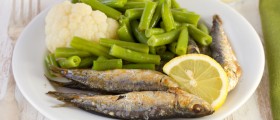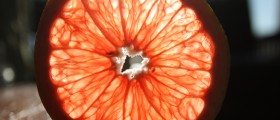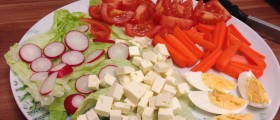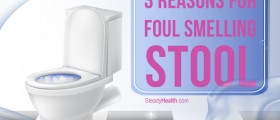This site has been most helpful. I've had mild flare-ups of pancreatitis two to three times a year for the past 3 years (lipase about double the high-end of normal levels). Experience nausea, pain, fatigue, etc. Had my gallbladder removed (no stones). Had two CT's with dye, nothing unusual. Drink occasionally, not much though. The only thing unusual was the gallbladder surgeon noted a mass around my stomach and a biopsy found it to be pancreatic tissue. Apparently I have a mass of ectopic pancreatic tissue around my stomach since birth. Eating light helps - tremendously. No caffine - no alcohol - no fat. Small meals, and drinking liquids at least 20 minutes before or after meals, not with the meal. I'm going through a bout now - also have an itch with no rash that the doctor says is likely related to the elevated lipase. I didn't know so many people suffer from this. No one I know had ever heard of it and no one seems to care. It's good to find a community to share with.
Loading...
i just returned home from a 18 hr stay at the hospital from acute pancreatitis. my enzymes were 5034 when i went in and only 592 when i left. however, i have some soreness in my pancreas region. not pain like an attack, but just soreness. also, i sometimes get hunger pains since the diet is virtually nothing. has anyone had this problem?
Loading...
same here... I'm scared.. maybe its an after occurence who knows... I dont feel sore i feel bloated and gasy...
Loading...
I have had three attacks..the first one I was in the hospital for 12 days and on a "fluid" only diet......the dr told me as I was to be discharged "to stay out of McDonald's".....the dietitian told me NO MORE FRIED FOODS..NO MORE CAKE COOKIES BARS PIES........NO NUTS WHAT SO EVER and only two egg whites a day and one egg yolk.....I don't have one egg a month and also eat wheat bread and skim milk.......two years to the day I had my second attack and that is because I thought I was doing so good that I started to eat what "I liked and wanted" so it brought on another attack.and was in the hospital for six days..Then this past June 4th the Drs. thought that a 'stent' would help me but that one in ten cases it would cause another full blown attack...WELL hoping that the stent would help I had it put in and at midnight that night my kids where taking me to the ER in a full blown attack. NOW with the holidays approaching I have taken leave of what I know I shouldn't be eating and last night I thought I was headed to the ER again, but I cried out to the LORD to help me get thru this..my daughter brought me pain pills and nausea pills...NOW 24 hours later I am still at home but still don't feel normal. so hopefully this will pass and my mind will tell me not to eat what my eyes see as being items of what I want.............
Loading...
i have been suffering since oct 7,07 and been in the hospital atleast 8 times i enjoy alcohol and i was in culinary school so giving up food and drink is still hardest for me i actually got kicked out of culinary school do to being so sick in the mornings that i was always late for class i'm trying to come up with filling tasty dishes but that is also limited i did fing mediteranian vegatarian books to have interesting choices i was really wondering why i can't find any sothern california support groups that would deal with alcohol,eating,medications,and info they really do just send you home from the hospital to fend for yourself and alot of you are right no one has even heard of the pancreas unless it has hit them all of us together need to start a all inclusive site that would help those of us struggling day to day i also have gastroenteritis which i now know can come along with the pancreas problems people have no sympathy for me because you can't always see the symptoms and when you are sick you don't leave the house please help with any suggestions or websites :'(
Loading...
oh btw if anyone is really hungry but can't eat i have been able to eat funions they are in most grocery store isles or by the chip isle they are surprisingly light n airy no fat or oilyness do not hurt my stomach at all and can be eaten at any time of day :-)
Loading...
Hi All,
I am so relieved to find other people who are suffering from this disease. I felt all alone for a long time. My first attack occurred around the fall early winter of 2003. I was hospitalized for a week, however I was also drinking pretty steadily. Since the attack I have not had a drink. Last Thanksgiving I ended up back in the hospital with another acute attack. I had a gastric bypass in 2000 so my enzymes are never elevated. ( I just found that piece of info within the last month as to why to enzymes never rise.) I continued with attacks almost monthly until around June of 2008. I then went through the summer pretty well. I had another attack in September '08 and my doctor told me he had no idea why I had these attacks and really kind of turned me loose. He had been treating the attacks with pain medicine. So for almost a year I lived on pain med. I then went to my gastric bypass doctor and he sent me to a pancreas specialist about 2 weeks ago. She immediately put me on enzymes and promised she would find the cause even if it meant genetic testing. My daily pain level is usually around a 5-6, however an attack sends me beyond a ten. I have tried to stay home when I get an attack but within a couple of days I'm back in the hospital on IV and pain med for a week. I had an attack two weeks ago Monday and they let me come home on pain med and using my gastric tube. I never fully recovered. Last Monday I had another cat scan and the head of my pancreas is still inflamed. I haven't eaten this week and when I do it just notches up the pain. Is anyone else in daily pain? Is anyone living on pain med? By the way, my enzyme says take with food. Are you kidding? How do I take it when I can't eat? Anyone have any suggestions?
I am so relieved to find other people who are suffering from this disease. I felt all alone for a long time. My first attack occurred around the fall early winter of 2003. I was hospitalized for a week, however I was also drinking pretty steadily. Since the attack I have not had a drink. Last Thanksgiving I ended up back in the hospital with another acute attack. I had a gastric bypass in 2000 so my enzymes are never elevated. ( I just found that piece of info within the last month as to why to enzymes never rise.) I continued with attacks almost monthly until around June of 2008. I then went through the summer pretty well. I had another attack in September '08 and my doctor told me he had no idea why I had these attacks and really kind of turned me loose. He had been treating the attacks with pain medicine. So for almost a year I lived on pain med. I then went to my gastric bypass doctor and he sent me to a pancreas specialist about 2 weeks ago. She immediately put me on enzymes and promised she would find the cause even if it meant genetic testing. My daily pain level is usually around a 5-6, however an attack sends me beyond a ten. I have tried to stay home when I get an attack but within a couple of days I'm back in the hospital on IV and pain med for a week. I had an attack two weeks ago Monday and they let me come home on pain med and using my gastric tube. I never fully recovered. Last Monday I had another cat scan and the head of my pancreas is still inflamed. I haven't eaten this week and when I do it just notches up the pain. Is anyone else in daily pain? Is anyone living on pain med? By the way, my enzyme says take with food. Are you kidding? How do I take it when I can't eat? Anyone have any suggestions?
Loading...
"Nexium can cause pancreatitis. It is on the list on medications which cause pancreatitis. My physician showed me the list."
Loading...
"You need a new doctor..I have been on diluad pain med for the past year. It is the only drug that helps the pain and I really live on it. Without it, now, I cannot be with my kids ( Ihave 5 ) I may be addicted,however you are right. ANything is better than living this hellish pain and being totally unable to live a "normal" life. Hang in there..and seriously look around for a better doctor.
Loading...
Having read all of these recent posts, it's evident that several people here could benefit from an experienced gastroenterologist. If your doctor hasn't referred you to one, have him/her do so immediately. I've been very fortunate in having a physician who is well educated in a number of diseases but isn't shy about referring me to a specialist when need be.
One thing I haven't heard mentioned here is TPN. Once hospitalized, particularly people who are repeatedly hospitalized for acute pancreatitis, the gastroenterologist will almost certainly order this. What this does, is allow you to be fed intravenously - you will not be allowed any food OR beverage in an attempt to allow the pancreas to rest and repair itself. This can span anywhere from 2 weeks to 8 weeks (even longer, I'm told, but I haven't personally known anyone who needed it longer than 8 weeks). The last time I had TPN, it lasted 25 days. After the TPN is removed, foods are added back slowly - first 1 to 3 days of liquids only, then a soft diet, and eventually a regular, albeit lowfat, diet before being sent home. This usually buys me 3 to 4 months before I run into another attack. Unfortunately, I take HIV medications that are responsible for my pancreatitis; a necessary evil, so I'm stuck with the quarterly attacks.
Once home, I have found eating several small - and I do mean small - meals a day is better than eating 2 or three large ones. Also, low fat doesn't need to be no-taste. I found, for instance, that Kroger has a non-fat cream cheese that actually tastes like regular cream cheese. As a result, I've used it in such things as burritos and home-made maccaroni and cheese. I've evn served cheese cake made from this. I use egg beaters in place of eggs - sometimes I even use tofu for scrambled eggs, adding several fresh ingredients and again, my non-fat cream cheese, to give some flavor.
I grew up with and love mexican food, so I've had to make some serious substitutions to allow for this. For instance, I can use lowfat yogurt in place of sour cream, I make my own "refried beans" but omit the oil - instead, after I cook a pot of pinto beans, I drain all but a small amount of the liquid, then using a "stick blender" (a hand held blending device), I puree a portion of the beans and water until I get the desired consisteny, then cook it down just a bit for a firmer product. It tastes fine without the lard, and frankly, you can now buy low-fat refried beans in a can.
There are of course tortillas that are non-fat now, and I've learned to make either nonfat cream cheese enchiladas or lean chicken ones. Instead of cheddar cheese, I top them with a white sauce I make from the cream cheese, some wondra flour and non-fat milk.
It's a struggle in the beginning, but you'll find a lot of things you can eat and be satisfied with. Fortunately, I've cooked since I was high enough to reach the stove top, but for those less creative, there are a lot of non-fat, reduced fat items that are delicious out there. The trick is trying them and sticking to the things that work for you.
As for the enzymes, it's important to take them with meals to help digest. Since I eat six small meals, I had to remind my doctor to revise the prescribed amount to take this into account. I usually take them 10 minutes before I'm ready to eat, and this suffices.
I noticed, for some reason, I've become lactose intolerant in this process, so now I drink a low fat lactaid product. In fact, foods I never had problems with, now make me bloated. The trick is to eat small portions and do so slowly. I even drink water slower, which isn't always easy living in the desert!
The real key to this or any disorder is finding the physician that works for your needs. Look up pancreatitis on peer reviewed websites such as WebMD and see what's recommended there. This will give you something to discuss with your doctor. If you feel his answers make you uneasy - hey, he works for YOU - don't hesitate to ask for another doctor. Even then, sometimes a doctor I like doesn't always provide the info I'm looking for.
A perfect example: I developed pancreatic pseudocycts, one of which refused to go away on it's own - it kept growing and growing and growing. The gastroenterologist I had been working with strated discussing a procedure with me which required the removal of my spleen and most of my pancreas. This, he said, would get rid of the pseudocysts. When I asked if it would stop the attacks of pancreatitis, he admitted it might not. I went home, read online all I could and came back with questions. His answers made me uncomfortable, so when it was time to see a surgeon, I asked the same questions. The surgeon agreed with me and though I still required painful surgery, I still have my spleen and all of my pancreas, and so far, I don't have any problematic pseudocysts at the moment.
I've met many people with this disease; before I had it, I never heard of it. There are a lot of people out there; the trick is finding them in your area. The internet is a good start. Search local chat rooms if necessary - you might even find a local medical bulletin board that puts you in touch with others in your community. Frankly, educating my friends and family has been enough for me - they've been very supportive.
Good luck to all of you with this disease and don't be shy with those doctors - if I had been, I might not have a spleen today - and that's a whole other ball game I didn't want to play!
One thing I haven't heard mentioned here is TPN. Once hospitalized, particularly people who are repeatedly hospitalized for acute pancreatitis, the gastroenterologist will almost certainly order this. What this does, is allow you to be fed intravenously - you will not be allowed any food OR beverage in an attempt to allow the pancreas to rest and repair itself. This can span anywhere from 2 weeks to 8 weeks (even longer, I'm told, but I haven't personally known anyone who needed it longer than 8 weeks). The last time I had TPN, it lasted 25 days. After the TPN is removed, foods are added back slowly - first 1 to 3 days of liquids only, then a soft diet, and eventually a regular, albeit lowfat, diet before being sent home. This usually buys me 3 to 4 months before I run into another attack. Unfortunately, I take HIV medications that are responsible for my pancreatitis; a necessary evil, so I'm stuck with the quarterly attacks.
Once home, I have found eating several small - and I do mean small - meals a day is better than eating 2 or three large ones. Also, low fat doesn't need to be no-taste. I found, for instance, that Kroger has a non-fat cream cheese that actually tastes like regular cream cheese. As a result, I've used it in such things as burritos and home-made maccaroni and cheese. I've evn served cheese cake made from this. I use egg beaters in place of eggs - sometimes I even use tofu for scrambled eggs, adding several fresh ingredients and again, my non-fat cream cheese, to give some flavor.
I grew up with and love mexican food, so I've had to make some serious substitutions to allow for this. For instance, I can use lowfat yogurt in place of sour cream, I make my own "refried beans" but omit the oil - instead, after I cook a pot of pinto beans, I drain all but a small amount of the liquid, then using a "stick blender" (a hand held blending device), I puree a portion of the beans and water until I get the desired consisteny, then cook it down just a bit for a firmer product. It tastes fine without the lard, and frankly, you can now buy low-fat refried beans in a can.
There are of course tortillas that are non-fat now, and I've learned to make either nonfat cream cheese enchiladas or lean chicken ones. Instead of cheddar cheese, I top them with a white sauce I make from the cream cheese, some wondra flour and non-fat milk.
It's a struggle in the beginning, but you'll find a lot of things you can eat and be satisfied with. Fortunately, I've cooked since I was high enough to reach the stove top, but for those less creative, there are a lot of non-fat, reduced fat items that are delicious out there. The trick is trying them and sticking to the things that work for you.
As for the enzymes, it's important to take them with meals to help digest. Since I eat six small meals, I had to remind my doctor to revise the prescribed amount to take this into account. I usually take them 10 minutes before I'm ready to eat, and this suffices.
I noticed, for some reason, I've become lactose intolerant in this process, so now I drink a low fat lactaid product. In fact, foods I never had problems with, now make me bloated. The trick is to eat small portions and do so slowly. I even drink water slower, which isn't always easy living in the desert!
The real key to this or any disorder is finding the physician that works for your needs. Look up pancreatitis on peer reviewed websites such as WebMD and see what's recommended there. This will give you something to discuss with your doctor. If you feel his answers make you uneasy - hey, he works for YOU - don't hesitate to ask for another doctor. Even then, sometimes a doctor I like doesn't always provide the info I'm looking for.
A perfect example: I developed pancreatic pseudocycts, one of which refused to go away on it's own - it kept growing and growing and growing. The gastroenterologist I had been working with strated discussing a procedure with me which required the removal of my spleen and most of my pancreas. This, he said, would get rid of the pseudocysts. When I asked if it would stop the attacks of pancreatitis, he admitted it might not. I went home, read online all I could and came back with questions. His answers made me uncomfortable, so when it was time to see a surgeon, I asked the same questions. The surgeon agreed with me and though I still required painful surgery, I still have my spleen and all of my pancreas, and so far, I don't have any problematic pseudocysts at the moment.
I've met many people with this disease; before I had it, I never heard of it. There are a lot of people out there; the trick is finding them in your area. The internet is a good start. Search local chat rooms if necessary - you might even find a local medical bulletin board that puts you in touch with others in your community. Frankly, educating my friends and family has been enough for me - they've been very supportive.
Good luck to all of you with this disease and don't be shy with those doctors - if I had been, I might not have a spleen today - and that's a whole other ball game I didn't want to play!
Loading...
I got a bit long winded on my last response and realized there were some questions on pain and support groups out there that I might be able to answer, as well. Also, for people having difficulty finding medical personnel in their area, I might recommend looking for a nearby University Medical Center - they usually have a host of physicians familiar with all aspects of this condition. The state medical board - often available online - can usually recommend experienced physicians in a given area as well.
As for the comments on pain management, it's true that some physicians are so "gun shy" about over prescribing these meds that they end up under prescribing them instead. Not that anyone who suffers from this would doubt it, but it bears mentioning that nearly every physician and nurse that I've encountered has made a comment about pancreatitis being one of the most painful conditions they encounter. If someone has a doctor that's not addressing pain management well, I have to guess that the doctor is either not familiar with pancreatitis or he is severely negligent in his practice and you need to get a new doctor - today!
My doctor and I had a long discussion about pain management in the beginning. I was, admittedly, concerned of becoming addicted to opioids. He explained that I may become physically dependent on these medications, but that wasn't to be confused with a full blown addiction where I would necessarily start taking too many for the "buzz effect". I take only what I need, but I probably am physically dependent at this point. On the other hand, I function quite well - mentally, anyway - and as my doctor pointed out, I'm going to likely have pancreatitis the rest of my life and require pain management just as long, so I'll likely never face the "what if...'s" of withdrawal. It does help that I wear a 72-hour pain patch (fentanyl) and only take oral morphine for break through pain - which I don't necessarily experience on a daily basis with the patch.
Finally, I wouldn't expect to find a support group specifically for pancreatitis, but because it is one of the most painful conditions out there, a good place to look would be for pain support groups. You're as likely to find others with pancreatitis there as anywhere, and even if you don't, you'll certainly find others sharing similar experiences and concerns as your own. Another good thing about pain support groups is that they often discuss doctors, treatments and perhaps most importantly, alternative pain management options. For instance, I am in touch with a naturalpathic physician - she has her medical license, but also attended a naturalpathic institution, giving me the best of both worlds when I see her.
Some of the options available in alternative pain management are acupuncture, massage therapy, meditation, and even exercise. In fact, exercise has been very important in managing my own pain. Even an hour long walk every evening can improve my mood and my pain levels. I noticed somebody mentioned hot showers and baths. For some reason, I discovered that soaking in a hot tub often helps me as well. Largely, I suspect, because I loosen all those muscles I've been tensing around the abdominal area once I'm in pain. Sometimes, the bath or even a heating pad is enough to keep me from another hospital stay; sometimes nothing but a trip to the ER helps. But having options that help us level control over our own pain is important. Pills are fine, but as many of us know, they aren't always enough - eventually, the pain always starts to escalate at some point (due to my HIV meds, in my case) and the longer I can sustain without a trip to the hospital, the better. I won't lay there in pain avoiding the hospital, but if there is something I can do to make the pain manageable, then I will most certainly try that first.
I sincerely hope somebody finds something helpful out of this information, because nobody deserves to suffer from pain and/or lack of support when there ARE options out there. I wish everyone the best and a happy (-er) new year!
As for the comments on pain management, it's true that some physicians are so "gun shy" about over prescribing these meds that they end up under prescribing them instead. Not that anyone who suffers from this would doubt it, but it bears mentioning that nearly every physician and nurse that I've encountered has made a comment about pancreatitis being one of the most painful conditions they encounter. If someone has a doctor that's not addressing pain management well, I have to guess that the doctor is either not familiar with pancreatitis or he is severely negligent in his practice and you need to get a new doctor - today!
My doctor and I had a long discussion about pain management in the beginning. I was, admittedly, concerned of becoming addicted to opioids. He explained that I may become physically dependent on these medications, but that wasn't to be confused with a full blown addiction where I would necessarily start taking too many for the "buzz effect". I take only what I need, but I probably am physically dependent at this point. On the other hand, I function quite well - mentally, anyway - and as my doctor pointed out, I'm going to likely have pancreatitis the rest of my life and require pain management just as long, so I'll likely never face the "what if...'s" of withdrawal. It does help that I wear a 72-hour pain patch (fentanyl) and only take oral morphine for break through pain - which I don't necessarily experience on a daily basis with the patch.
Finally, I wouldn't expect to find a support group specifically for pancreatitis, but because it is one of the most painful conditions out there, a good place to look would be for pain support groups. You're as likely to find others with pancreatitis there as anywhere, and even if you don't, you'll certainly find others sharing similar experiences and concerns as your own. Another good thing about pain support groups is that they often discuss doctors, treatments and perhaps most importantly, alternative pain management options. For instance, I am in touch with a naturalpathic physician - she has her medical license, but also attended a naturalpathic institution, giving me the best of both worlds when I see her.
Some of the options available in alternative pain management are acupuncture, massage therapy, meditation, and even exercise. In fact, exercise has been very important in managing my own pain. Even an hour long walk every evening can improve my mood and my pain levels. I noticed somebody mentioned hot showers and baths. For some reason, I discovered that soaking in a hot tub often helps me as well. Largely, I suspect, because I loosen all those muscles I've been tensing around the abdominal area once I'm in pain. Sometimes, the bath or even a heating pad is enough to keep me from another hospital stay; sometimes nothing but a trip to the ER helps. But having options that help us level control over our own pain is important. Pills are fine, but as many of us know, they aren't always enough - eventually, the pain always starts to escalate at some point (due to my HIV meds, in my case) and the longer I can sustain without a trip to the hospital, the better. I won't lay there in pain avoiding the hospital, but if there is something I can do to make the pain manageable, then I will most certainly try that first.
I sincerely hope somebody finds something helpful out of this information, because nobody deserves to suffer from pain and/or lack of support when there ARE options out there. I wish everyone the best and a happy (-er) new year!
Loading...
Unfortunately, most people eat a primarily cooked or processed diet. Heat renders enzymes in the food inactive. Many people microwave foods that are normally enzyme-rich, such as vegetables. Companies are making vegetables that can be microwaved right in their packages, which promotes even more microwave cooking. This denatures the enzymes in the food, so your pancreas has to make up for this. Usually, the raw food would contribute about 75% of the enzymes required for digestion. High heat/microwaving destroys them. Even scarier is that there are now microwave versions of baby food! Plus, some are pushing for irradiating vegetables to prevent salmonella/E.coli, but irradiating also destroys enzymes. Imagine how much more common pancreatitis will become--it has been on the rise for some time now.
I used to recommend enzymes for all patients over 40, but significant digestive complaints are presenting at much younger ages now. The low fat diet advice frequently prescribed by conventional medicine over the past couple decades has led to gall bladder problems (the gall bladder doesn't contract regularly, so becomes sluggish and diseased). Pancreas issues may ensue, especially if the duct has been blocked by stones. Pancreas enzymes are not supposed to become active until they reach the intestine, but can be cleaved to become active too early if there are problems in the duct--stones, cysts, etc. Active enzymes break down food, but becoming active in the wrong location can cause damage--a sort of self-digestion--inflammation.
Many digestive complaints are commonly being treated with acid-preventers like "the purple pill" which blocks stomach acid, when the real problem is a lack of stomach acid--the food is rotting and producing lactic acid. Reflux occurs because the system does not want to move the food downward, since it hasn't been broken down enough. This causes the typical heartburn complaint. Poorly digested food then continues to the small intestine, placing an overload on the rest of the digestive tract. Gas is common because bacteria get a smorgasbord. As they act on the undigested food, they give off gas as a by-product. Excessive burping (often accompanied by right shoulder blade area discomfort) is a good indicator of gall bladder issues. Flatulence is a further indicator of inadequate digestive enzymes. Inadequate enzymes stress the pancreas. In my view, it is unlikely that one will be able to resume much of a normal diet without pancreatic enzymes after having experienced an episode of pancreatitis.
I used to recommend enzymes for all patients over 40, but significant digestive complaints are presenting at much younger ages now. The low fat diet advice frequently prescribed by conventional medicine over the past couple decades has led to gall bladder problems (the gall bladder doesn't contract regularly, so becomes sluggish and diseased). Pancreas issues may ensue, especially if the duct has been blocked by stones. Pancreas enzymes are not supposed to become active until they reach the intestine, but can be cleaved to become active too early if there are problems in the duct--stones, cysts, etc. Active enzymes break down food, but becoming active in the wrong location can cause damage--a sort of self-digestion--inflammation.
Many digestive complaints are commonly being treated with acid-preventers like "the purple pill" which blocks stomach acid, when the real problem is a lack of stomach acid--the food is rotting and producing lactic acid. Reflux occurs because the system does not want to move the food downward, since it hasn't been broken down enough. This causes the typical heartburn complaint. Poorly digested food then continues to the small intestine, placing an overload on the rest of the digestive tract. Gas is common because bacteria get a smorgasbord. As they act on the undigested food, they give off gas as a by-product. Excessive burping (often accompanied by right shoulder blade area discomfort) is a good indicator of gall bladder issues. Flatulence is a further indicator of inadequate digestive enzymes. Inadequate enzymes stress the pancreas. In my view, it is unlikely that one will be able to resume much of a normal diet without pancreatic enzymes after having experienced an episode of pancreatitis.
Loading...
does anyone find that pineapple causes pain?
Loading...
I was in the hospital from Jan 10- Jan 17. Started getting sharp tummy pains and knew within 5 minutes this was not a "bug". ER treated me as if I were a spoiled brat because I was screaming, literally, from the pain. When my blood work came back and the normal range was supposed to be 18-35 and mine was 1600, they started dancing around me like I owned the place. Stayed in hospital for 1 week in a dalaudid induced coma (Thank GOD for pain drugs). I kid you not, I am 41 years old and I have been through many physical pains in my short life but that one takes the World Cup. I left with lots of good info such as causes, diet plan, pain management. I too was on liquid for most of my hospital stay. Eggs must be a natural craving because thats what I have been eating. Soft scrambled eggs. I really am not a huge egg fan, but I was getting hungry. Well of course no alcohol (not my issue), very low fat high protien and carb diet. Try oodles of noodles. Soups are good too. Cabbage(a great source of carbs) cooked slowly with some chicken strips and bullion cubes makes a delicious soup. Very small amount of soda. If you must then try ginger ale, 7up, sprite. Popsicles, lowfat pudding. After that excrutiating pain I would drink water forever to ward that off. 9 hours before I eased off. Good Luck. Maybe we will both get lucky and it wont be chronic, just one of those one time episodes you would not like to think about again!
Sincerely,
SoDaisy
Sincerely,
SoDaisy
Loading...
b]I was in the hospital from Jan 10- Jan 17. Started getting sharp tummy pains and knew within 5 minutes this was not a "bug". ER treated me as if I were a spoiled brat because I was screaming, literally, from the pain. When my blood work came back and the normal range was supposed to be 18-35 and mine was 1600, they started dancing around me like I owned the place. Stayed in hospital for 1 week in a dalaudid induced coma (Thank GOD for pain drugs). I kid you not, I am 41 years old and I have been through many physical pains in my short life but that one takes the World Cup. I left with lots of good info such as causes, diet plan, pain management. I too was on liquid for most of my hospital stay. Eggs must be a natural craving because thats what I have been eating. Soft scrambled eggs. I really am not a huge egg fan, but I was getting hungry. Well of course no alcohol (not my issue), very low fat high protien and carb diet. Try oodles of noodles. Soups are good too. Cabbage(a great source of carbs) cooked slowly with some chicken strips and bullion cubes makes a delicious soup. Very small amount of soda. If you must then try ginger ale, 7up, sprite. Popsicles, lowfat pudding. After that excrutiating pain I would drink water forever to ward that off. 9 hours before I eased off. Good Luck. Maybe we will both get lucky and it wont be chronic, just one of those one time episodes you would not like to think about again!
Sincerely,
SoDaisy
Sincerely,
SoDaisy
Loading...



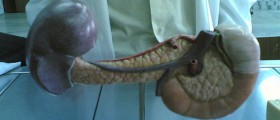
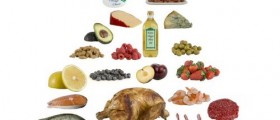
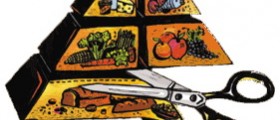
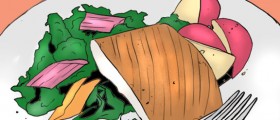
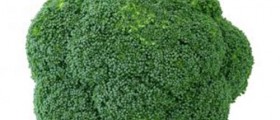
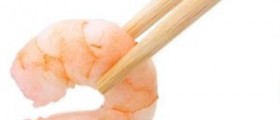
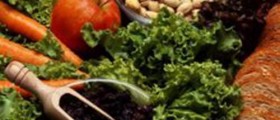
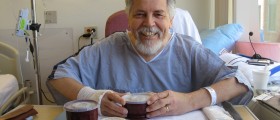
_f_280x120.jpg)
